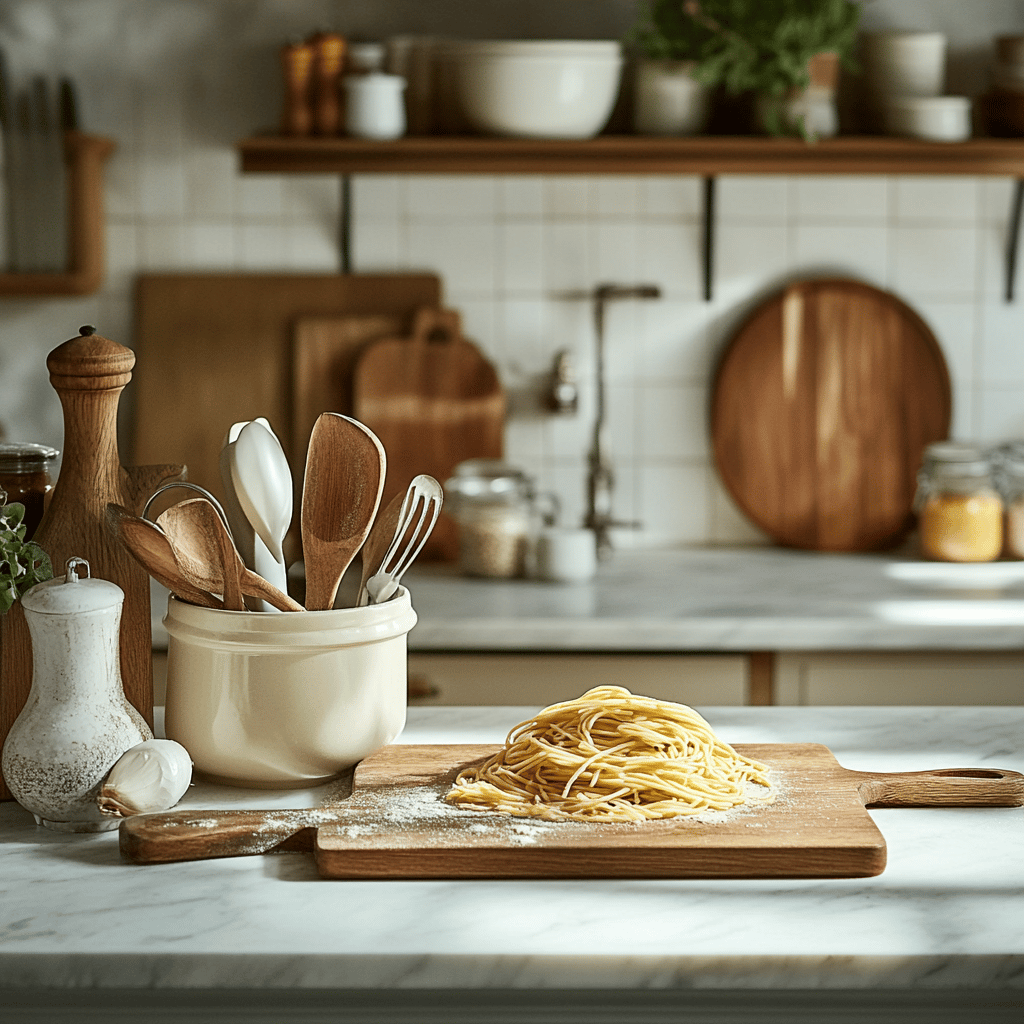The Best Fluffy Pancakes recipe you will fall in love with. Full of tips and tricks to help you make the best pancakes.

Barilla Settles the Debate: This Is When You Should Salt Pasta Water
Cooking pasta can seem deceptively simple, yet even the most seasoned chefs can find themselves scrambling to perfect this staple dish. One ongoing debate in the culinary world revolves around the timing and necessity of salting pasta water. In this article, we’ll dive deep into the nuances of this age-old question, drawing insights from Barilla, one of the most trusted names in pasta. By the end, you’ll know not just when to salt your pasta water, but why it’s crucial for elevating your pasta dishes to a new level of deliciousness.
The Basics of Pasta Cooking
Before we discuss salting the water, let’s refresh our memories on the basic process of cooking pasta. It seems straightforward, but the right techniques can enhance both flavor and texture.
Steps to Cooking Perfect Pasta
1. **Choose the Right Pasta**: Whether opting for spaghetti, penne, or farfalle, each type has its unique cooking time and suited dishes.
2. **Boil Adequate Water**: Use a large pot filled with water. A good rule of thumb is to add about 4-6 quarts of water for every pound of pasta.
3. **Bring to a Rolling Boil**: Make sure your water is fully boiling before adding the pasta to prevent it from becoming gummy.
4. **Add Salt**: Here’s where the debate begins; do you add salt before, while, or after cooking?
5. **Time the Cooking**: Follow the package instructions, but do taste the pasta a minute or two before the recommended time to catch it at the perfect al dente state.
6. **Drain and Serve**: Reserve some pasta water if needed for your sauce, but do not rinse the pasta unless the recipe calls for it.
Why Salt Pasta Water in the First Place?
The rationale for salting pasta water is largely twofold. Understanding these reasons will help clarify why timing matters:
1. Flavor Enhancement
Salt is a flavor enhancer. When you add salt to the water before cooking pasta, it ensures that the pasta absorbs some of that flavor while it cooks. This enhances the overall taste of the dish rather than just relying on the sauce alone.
2. Texture Improvement
Salt affects the texture of the pasta. It modifies the cooking process, allowing the starch on the pasta’s surface to firm up slightly, which prevents it from becoming overly soft or mushy. This results in a bite that has resistance—almost like a gentle spring when you chew.
When to Salt Your Pasta Water
Now that we’ve established why salting pasta water is essential, the bigger question remains: when exactly should you add the salt? Let’s explore the perspectives:
Before Adding Pasta – The Barilla Perspective
According to Barilla, the best practice is to salt the water **before** bringing it to a boil. This not only allows the salt to dissolve properly but ensures maximum flavor absorption by the pasta. Here’s why:
- The boiling water helps distribute the salt evenly throughout, ensuring every piece of pasta is seasoned.
- Salting the water beforehand aids in better temperature control, as the salt can raise the boiling point slightly.
Common Practices Among Chefs
Many chefs suggest a few variations:
– **Add salt to boiling water:** This approach is common; however, it can lead to uneven salting depending on how the salt mixes.
– **Post-cooking salting:** Some might advocate for salting the pasta after it’s drained to adjust flavor without risking over-salting while cooking. However, this is less effective than infusing the flavor directly in the cooking process.
How Much Salt Should You Use?
Now that we know when to salt our water, it’s crucial to discuss how much salt you should add. The ideal measurement can vary based on personal preference and dietary restrictions, but a standard guideline is:
General Recommendations
– For every quart of water, add about 1-2 tablespoons of salt. This typically results in a balanced flavor that will enhance, not overwhelm, the dish.
– If you’re using celebrated sea salt or kosher salt, remember that these salts can differ in grittiness, so adjust your measurements accordingly.
Are There Exceptions to the Rule?
Absolutely! While salting pasta water is a general best practice, there are exceptions, particularly for specific diets or recipes:
1. Lower Sodium Diets
If you’re on a low-sodium diet, you can either forgo salting entirely or use alternatives like herbs and spices to infuse flavor.
2. Integrating Sauce During Cooking
For dishes where the pasta cooks directly in the sauce (like one-pot pasta recipes), salting the water might not be necessary, as the flavors can meld more cohesively without additional salt in the water.
The Importance of Quality Pasta
While salting is crucial for flavor, so is the quality of your pasta. Barilla, for instance, uses high-quality durum wheat that naturally has a pleasant flavor and texture. The enhancements from salted water cannot overcome poor pasta.
What to Look for in Pasta
– Look for pasta made from 100% durum wheat.
– Ensure there are no artificial flavors or preservatives.
– Find a brand that supports sustainable practices—this benefits both consumers and the environment.
Incorporating Salt Beyond Boiling Water
Many cooks often overlook additional opportunities to salt in pasta preparation. Let’s look at these instances:
1. Salting the Sauce
Salt can play a significant role in your sauce as well. A well-salted sauce can lift the flavors of your entire dish. Always taste and adjust as needed to ensure a harmonious balance.
2. Finishing Salt
A sprinkle of finishing salt, such as fleur de sel or Maldon sea salt, can elevate a plated pasta dish, offering delightful textural contrast against a rich sauce.
Conclusion
In summary, salting pasta water isn’t just a mere suggestion; it’s a key step in crafting the perfect pasta dish. By following Barilla’s advice to salt your water before boiling, you enhance both the flavor and texture of your pasta. Remember to consider personal preferences and dietary needs when adjusting salt levels.
If you liked this article, check out our delicious Tasty 30-Minute Mushroom Pasta for a delightful dish that you’ll want to perfect with properly salted pasta.





